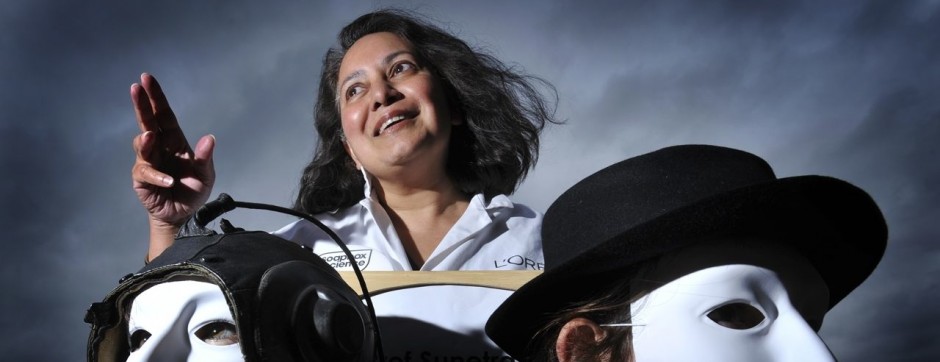 Alison Connolly is a PhD candidate in the School of Physics at the National University of Ireland (NUI) Galway. Alison is an exposure scientist conducting research on how professional gardeners in Ireland may be exposed to the chemicals they work with (in particular weed killers). She will be taking part in Soapbox Science Galway on 7th July with her talk: “When you use pesticides at work, do you absorb the chemical into your body?”
Alison Connolly is a PhD candidate in the School of Physics at the National University of Ireland (NUI) Galway. Alison is an exposure scientist conducting research on how professional gardeners in Ireland may be exposed to the chemicals they work with (in particular weed killers). She will be taking part in Soapbox Science Galway on 7th July with her talk: “When you use pesticides at work, do you absorb the chemical into your body?”
SS: What is the most enjoyable aspect of your research/work?
 AC: My research involves working with workers who spray pesticides in parks and gardens as part of their work duties. This research is to assess whether the workers are being exposed to these chemicals. I collected urine samples from workers after spraying pesticides to see if they were absorbing the chemical into their body. To identify how the workers were being exposed to the chemical, additional samples were also collected from the hands and around the mouth area of worker. The hand samples were to assess whether the chemical was being absorbed through the skin, while the mouth area samples were to identify whether there was an issue with workers accidentally ingesting the chemical when they wiped their mouth, were speaking on the phone or when eating food after spraying chemicals. . As my research involves collecting exposure data from amenity horticulturists, I also get to enjoy visits to Ireland’s ornamental gardens and historic monuments as part of my research.
AC: My research involves working with workers who spray pesticides in parks and gardens as part of their work duties. This research is to assess whether the workers are being exposed to these chemicals. I collected urine samples from workers after spraying pesticides to see if they were absorbing the chemical into their body. To identify how the workers were being exposed to the chemical, additional samples were also collected from the hands and around the mouth area of worker. The hand samples were to assess whether the chemical was being absorbed through the skin, while the mouth area samples were to identify whether there was an issue with workers accidentally ingesting the chemical when they wiped their mouth, were speaking on the phone or when eating food after spraying chemicals. . As my research involves collecting exposure data from amenity horticulturists, I also get to enjoy visits to Ireland’s ornamental gardens and historic monuments as part of my research.
The most enjoyable part of my research is having the opportunity to explore and expand an area of research that there is limited information and to contribute to the exposure science community.
SS: What attracted you to Soapbox Science in the first place?
AC: I attended Soapbox Science Galway in 2017, as speaker assistant, and I really enjoyed the experience. I spoke to people in the audience and there was a lot of positive feedback from the event. I felt it gave an opportunity for the general public to find out about the type of research that is being conducted in Ireland and to ask questions that they usually would not get the opportunity to ask. It is a great way to disseminate scientific outcomes to the general public, as well as get the younger generation interested in science, as well as being surrounded by female role models. I have previously participated in outreach events but they usually involve the general public having to attend a science based event, while Soapbox Science is bringing science to the general public.
SS: Sum up your expectations for the event.
AC: I hope that by giving my soapbox science talk this year that I will make the general public aware of exposure science, get people asking questions and hopefully the event will spark an interest in science among the younger generation.
 SS: If you could change one thing about the scientific culture right now, what would it be?
SS: If you could change one thing about the scientific culture right now, what would it be?
AC: I would like to see more public engagement with research, which is becoming more and more prevalent, with initiatives such as this one and citizen science. A large part of my research is dissemination of results to participants, which includes developing feedback forms, giving presentations on my work and developing guidance to improve worker safety and I think this is extremely important, to ensure that science is not just shared with scientists!
